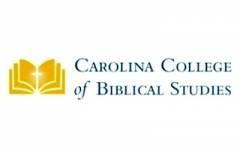

The aim is to establish an externally funded research centre that generates a range of publications, including digitalised versions of some of the Qumran scrolls. Semitic philology is a crucial element of these studies. The Section explores the dynamics behind apocalyptic ideas and texts in the three religions, via a number of studies, each with a different theoretical focus, including cognitive. The Qumran scrolls include examples of the earliest occurrences of the apocalyptic genre. This field therefore combines Old Testament, New Testament and Qur’anic Studies. Critically reflect on the role of the texts and of exegesis in relation to religious institutions and political power structures.Īpocalypticism and eschatology are recurring themes throughout the areas covered by the Section.Provide a classical education, with a view to ensuring a qualified, hermeneutically reflective and critical approach to the texts.Challenge current scholarly, secular and religious ideas.Ensure continued critical and creative reflection on the foundational writings of religions, cultures and societies, in order to have an informed and qualified perspective on these texts.The Biblical Studies Section therefore operates within the tradition of classical historical criticism, with a particular focus on linguistics, but also integrates new methodologies and new approaches to the written texts, and because of the nature and status of the texts draws on an interdisciplinary network of meaningful configurations. However, the section has a particular focus on philological and historical critical perspectives that enable the adoption of new, critically and hermeneutically reflective approaches. At least in principle, the exploration of the texts draws on all available and relevant methods and theories that can illuminate their many dimensions. The actual use of the texts, both now and in the past, is a priority area for research by the Section.Īpproaching the texts in this dynamic and polyphonic way requires a theoretical and methodological pluralism. The fact that the texts function as holy texts for living people is, therefore, a significant aspect of the Section’s work.

They are not just shaped by people they also shape people that are born into their history of effects. The texts are viewed as complex and wide-ranging networks of impacts, relations, conflicts and effects. the history of events, mentality and research in front of them. structures, layers and levels in them and the effects and impacts on e.g. preconditions behind them the different redactional, narrative, rhetorical, etc. The researchers have a dynamic approach to the texts, looking at the various historical, social, literary, etc. As a result, the study of these texts directly addresses several fundamental academic questions. They have had an immeasurable impact on the understanding of humankind, society and nature, both past and present. The texts are the most influential writings in the world. These scriptures are studied both separately and in terms of their interrelationship. The Section studies the formative writings of Judaism, Christianity and Islam, in the Old Testament, the New Testament and the Qur’an. We have also accumulated special research competencies in apocryphal literature, the Dead Sea Scrolls, Gnostic texts, reception history, Hellenic philosophy, gender hermeneutics, and text theory.

Interpreting the texts of the Bible is the core of the Section's expertise. We use methods and theories that range from philology, linguistics, archaeology, history, and sociology, to literary theories and theories of interpretation. Foto: Carsten Lundager / Ritzau ScanpixĪt the Section we work with the texts in their original languages, Hebrew, Aramaic (parts of the Old Testament), and Greek (New Testament), Arabic (Qur’an). When we attempt to understand these texts, this requires insight into the period and society in which they were written, and knowledge of how people have used and interpreted the texts in different ways. The Hebrew Bible and the New Testament came into being over a long period reaching back more than 2000 years. These texts exercise an enormous influence on religion, faith, culture, and practice in history and today. At the Biblical Studies Section we study and teach the texts of the Hebrew Bible and the New Testament as well as the Qur’an.


 0 kommentar(er)
0 kommentar(er)
